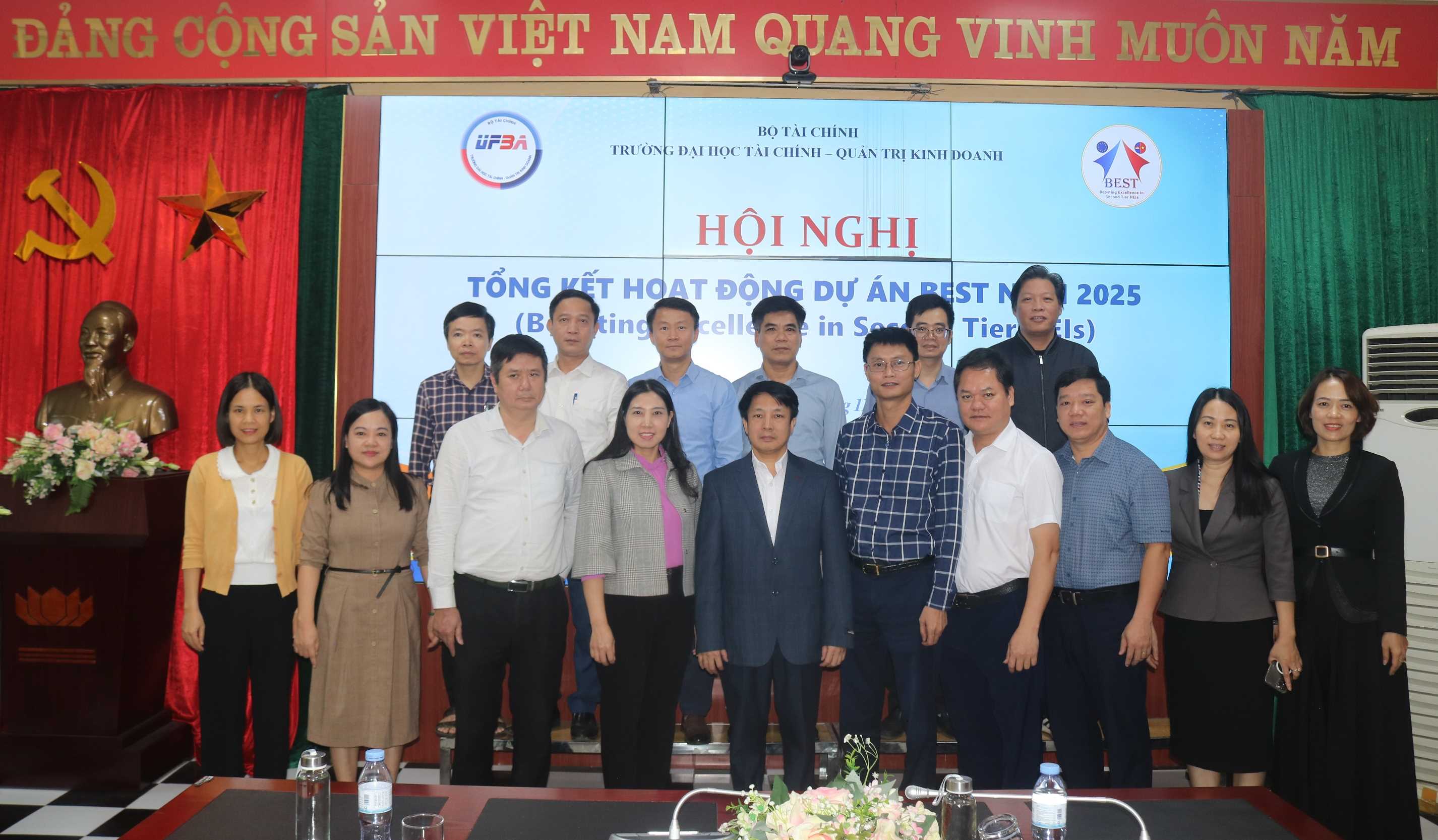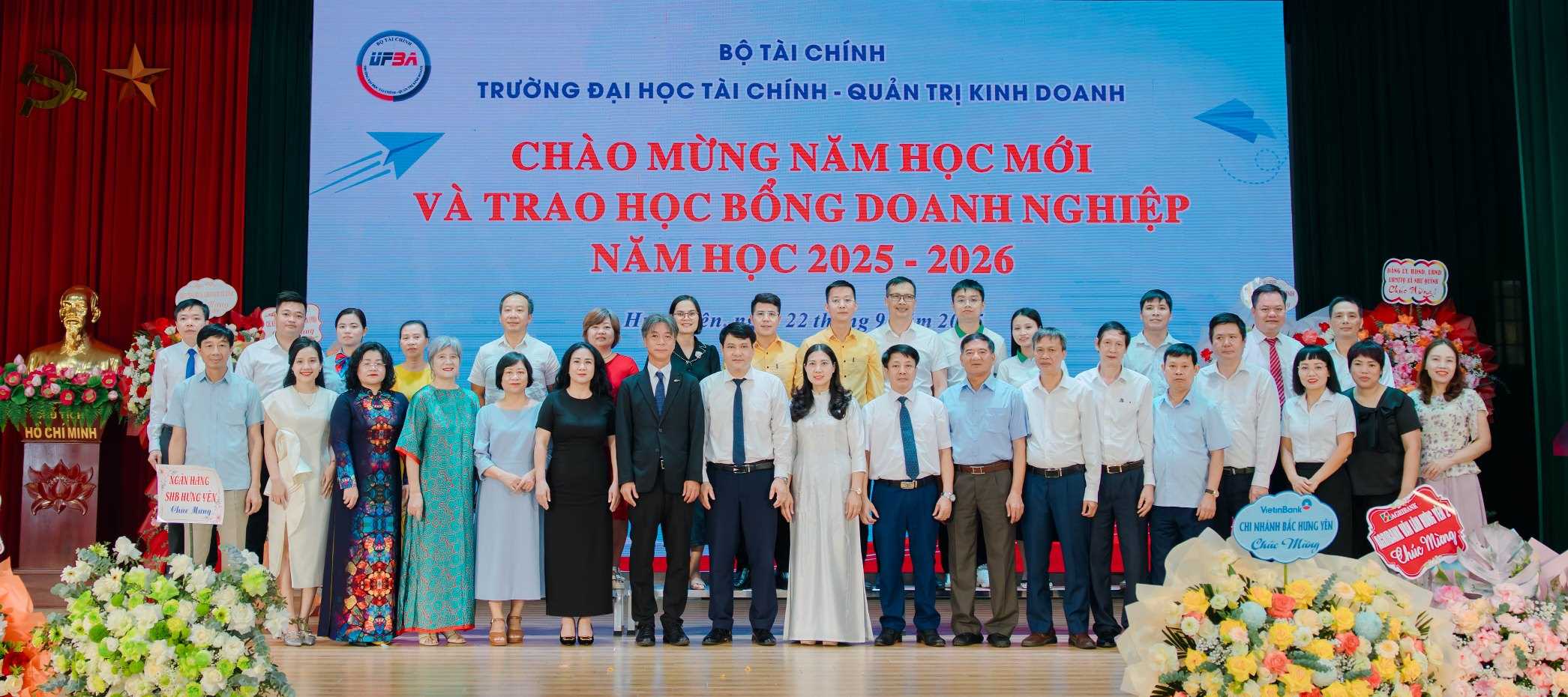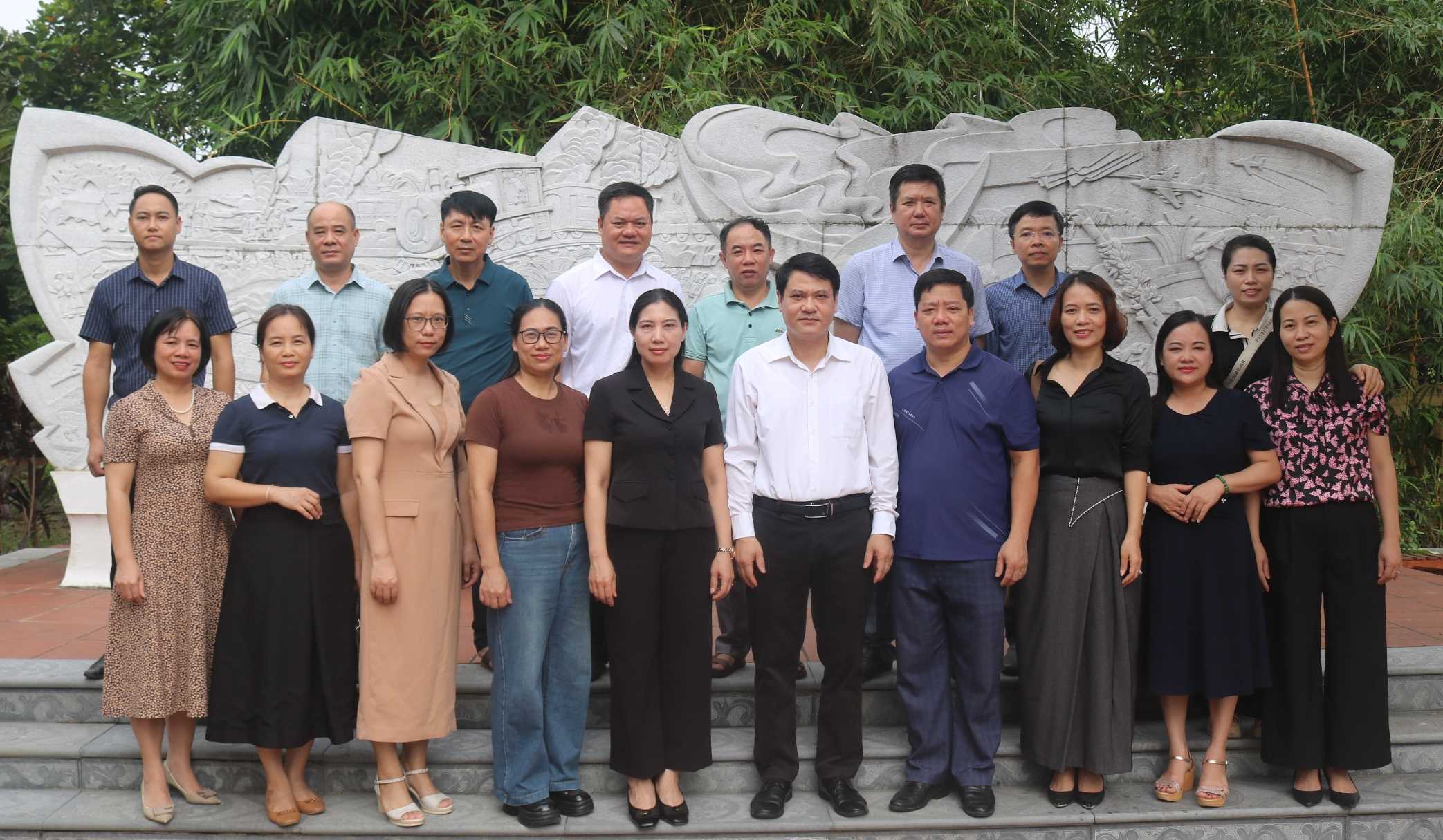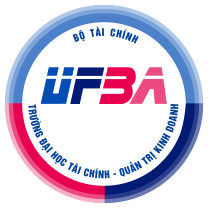UNIVERSITY OF FINANCE - BUSINESS ADMINISTRATION, A MEMBER OF ERASMUS + BEST PROJECT, PARTICIPATED IN TRAINING WORK IN PIRAEUS, GREECE
Within the framework of the Erasmus + Best project, the representatives of the University of Finance - Business Administration (UFBA) led by Dr. Nguyen Thi Bich Diep, Vice Rector, in charge of the university operations, Dr. Le Tuan Hiep - Chairman of Board, Dr. Quan Thi Hoang Anh - Head of the Faculty of Foreign Languages, attended all working sessions from October 20th to 25th and sideline activities.
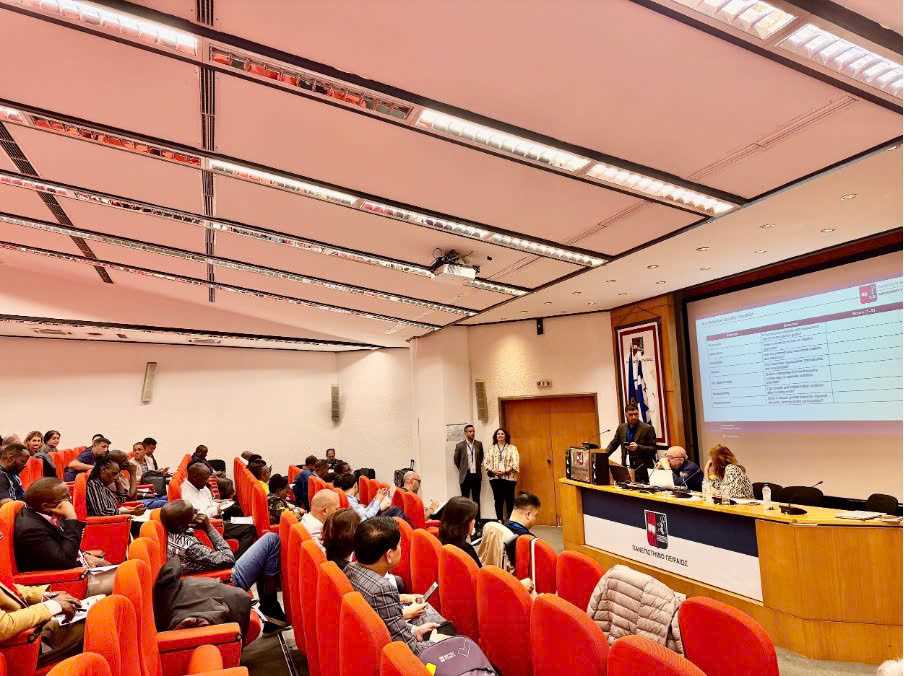
The scene of the traning staff week
The delegation participated in training activities, specifically: 1. How to organize your Collaborative Online International Learning Course (COIL)
This training session aimed to provide general information to project members on how to organize online international courses. It also made suggestions on building facilities, technology and staff to ensure the quality of the COIL courses. The experts highlighted the advantages and challenges of implementing such collaborative and discussed issues related to quality assurance. 2. Promoting Social Inclusion and Diversity
Next was a presentation by Mr. Stavos Millionis, President and Co-founder of the KEAN Foundation. He emphasized that diversification in the modern world is inevitable due to the trend of globalization and the exchange of students between universities and workers and experts between countries. This does not only happen in individual countries such as Greece or European countries but also globally. Social inclusion and diversity are not only related to education but also to the supply of labor, income and taxes for the relevant governments.
3. International Research Collaboration
The training session provided project members with strategies and methods for implementing international research collaboration. During the event, Dr. Christina Kontogoulidou, a representative of the host institution, also introduced various research tools and highlighted current international research directions.
The program was further enriched by a presentation from Professor Gregory Makrides, who discussed the importance of connection and collaboration in enhancing quality standards through internationalization — for example, finding suitable partners, studying their profiles, and assessing their compatibility with European standards.
The session also offered project partners and members strategies for research positioning and research grants, including approaches to accessing such funding opportunities - particularly for public universities.
This topic received significant attention, with many participants raising questions and engaging in discussion about the procedures for applying for research grants.
4. A Chair for Sustainable Human-Centric Cities
This is one of the interesting issues addressed in the working program.
Topics related to sustainable development were discussed, such as achieving balanced economic growth while ensuring social security and environmental protection for both current and future generations. These cities consider people as the central focus of all planning and development decisions. This is also a global objective that many countries are striving toward in the coming decades.
5. The Role of AI in Mobility
Another engaging topic that attracted attention from participants was the role of artificial intelligence in educational exchange. Specifically, the seminar introduced the application of technology and AI in new concepts related to the European Student Card which is expected to facilitate smoother student mobility across Europe.
In addition to supporting the management of student exchanges, this card offers students various benefits in travel, payments, and access to discounts available to students within the European Union.
This is an innovative idea that could be adapted and implemented by universities in other regions, such as Asia or smaller regional bloc like Southeast Asia.
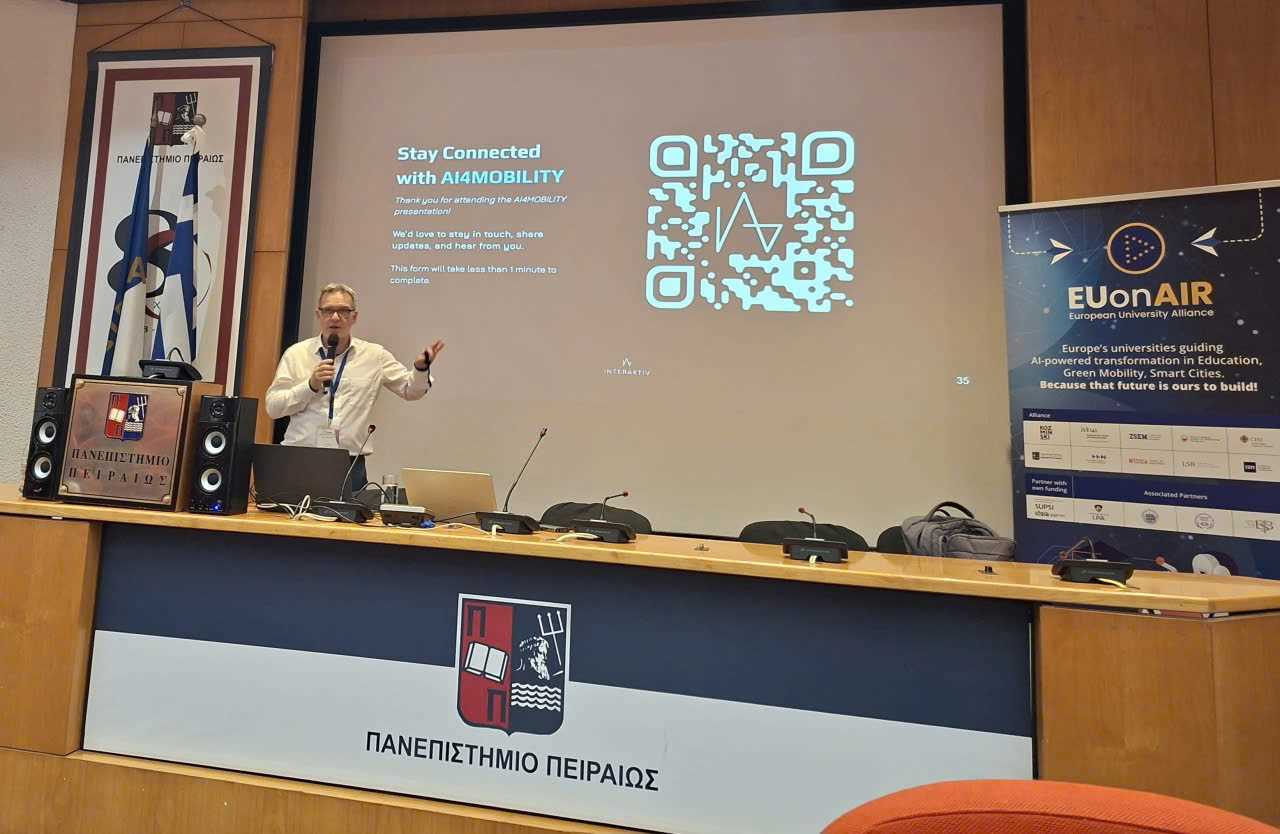
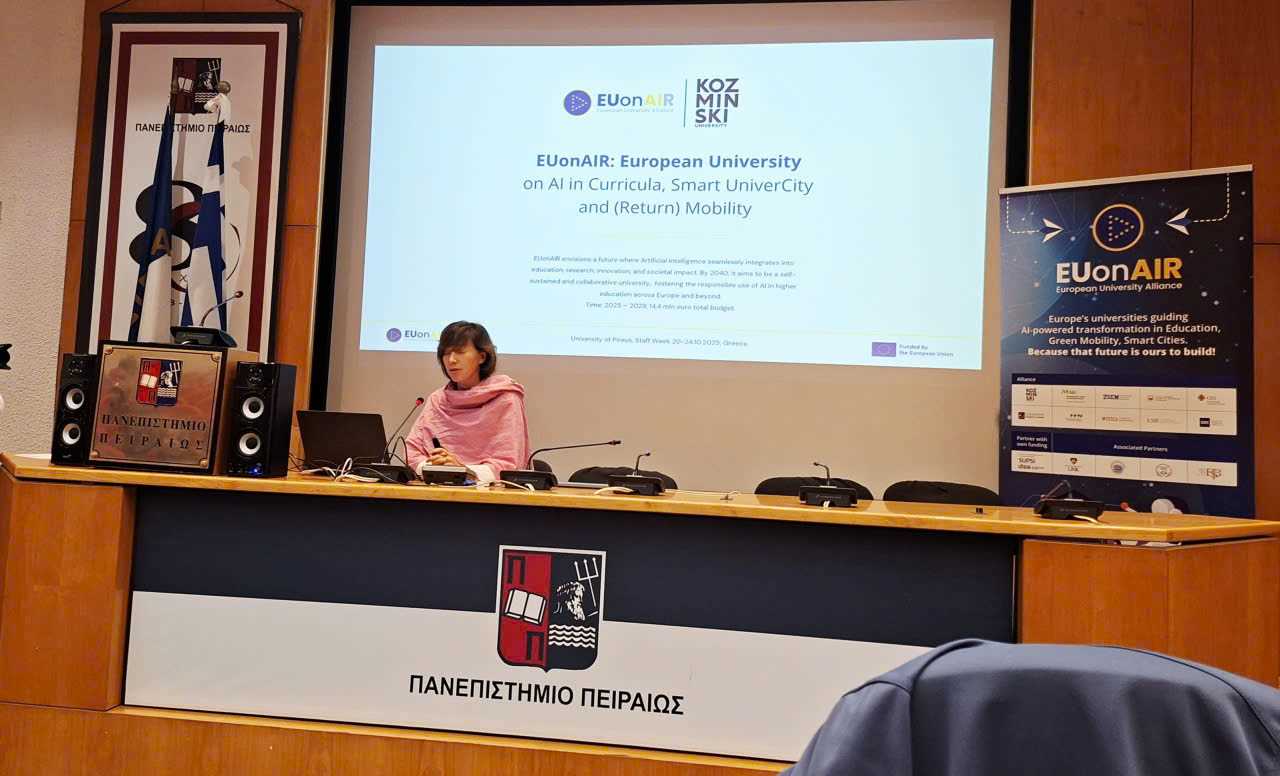
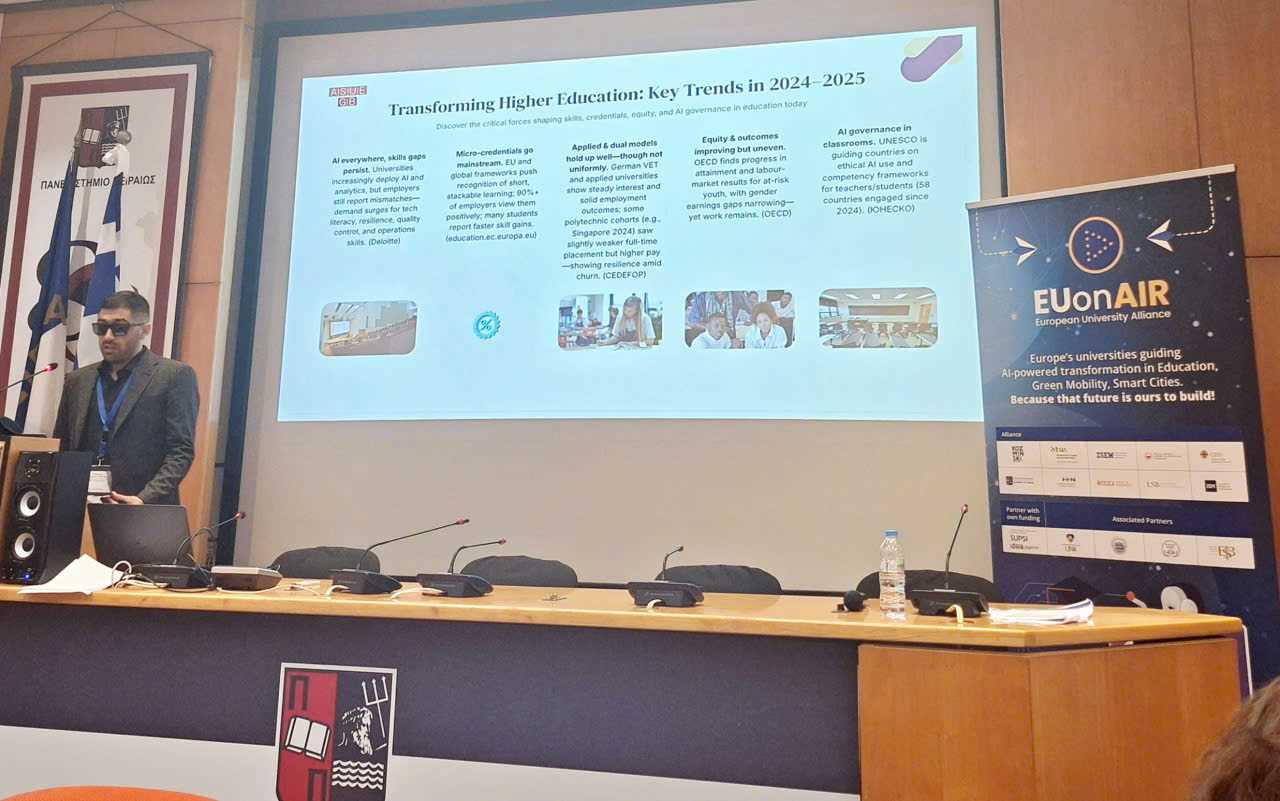
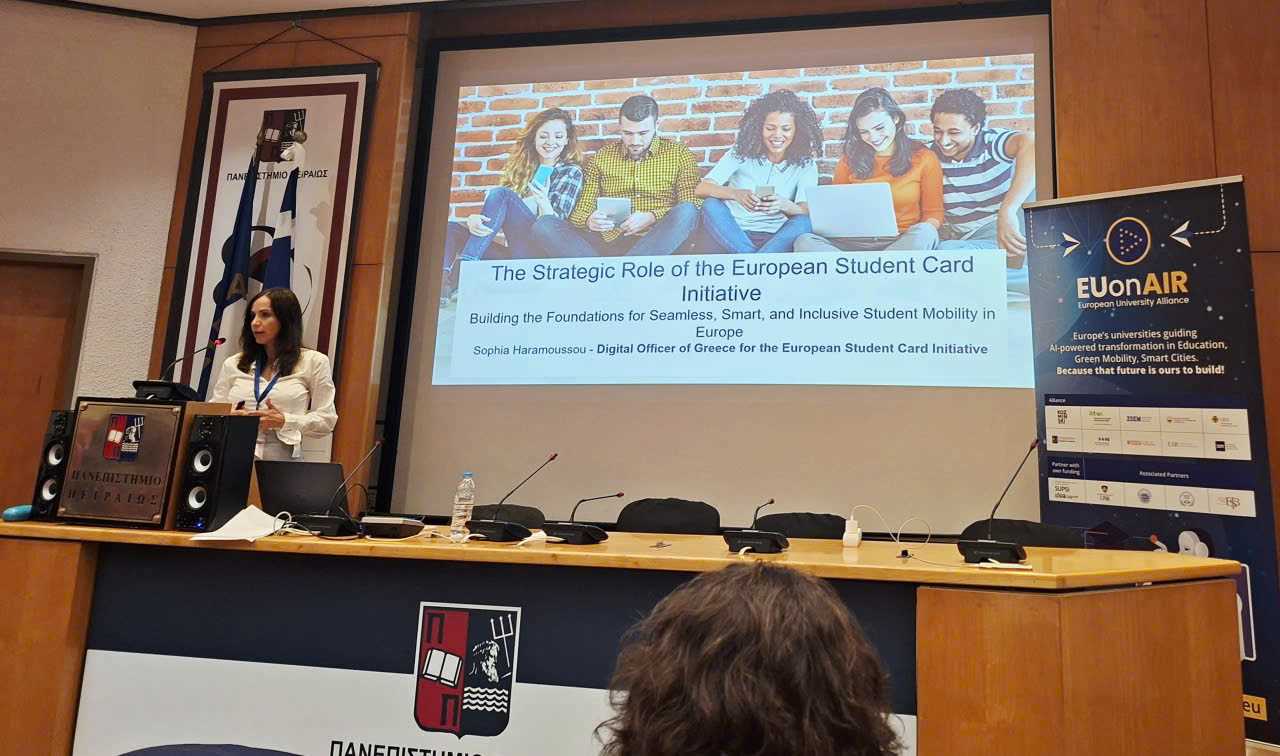
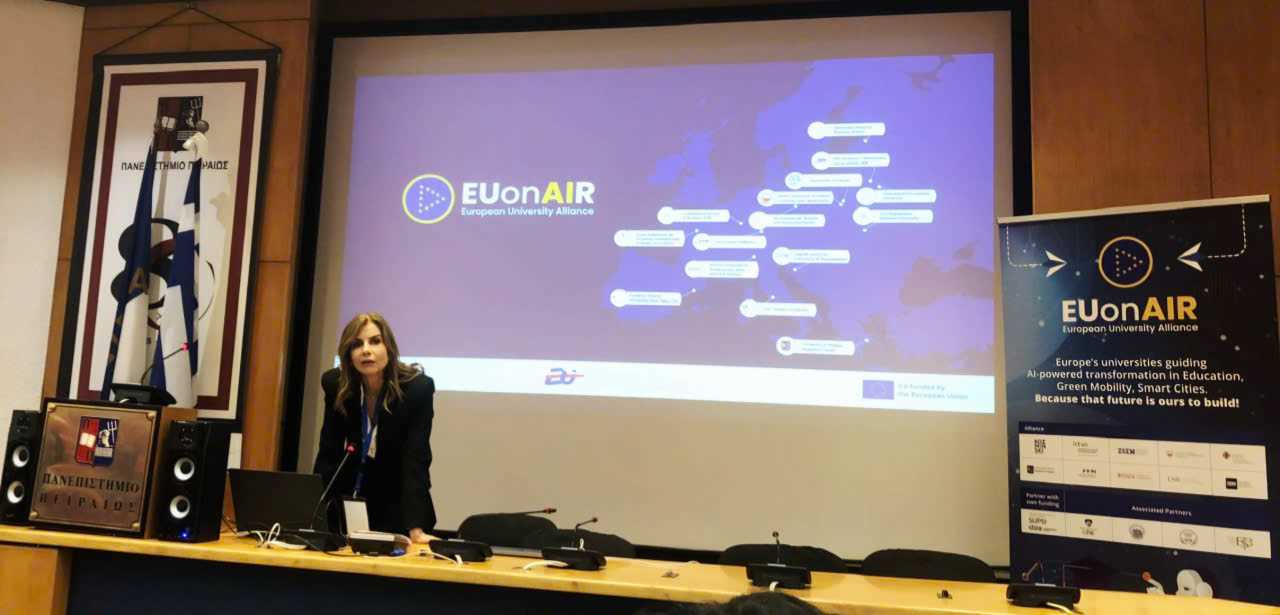
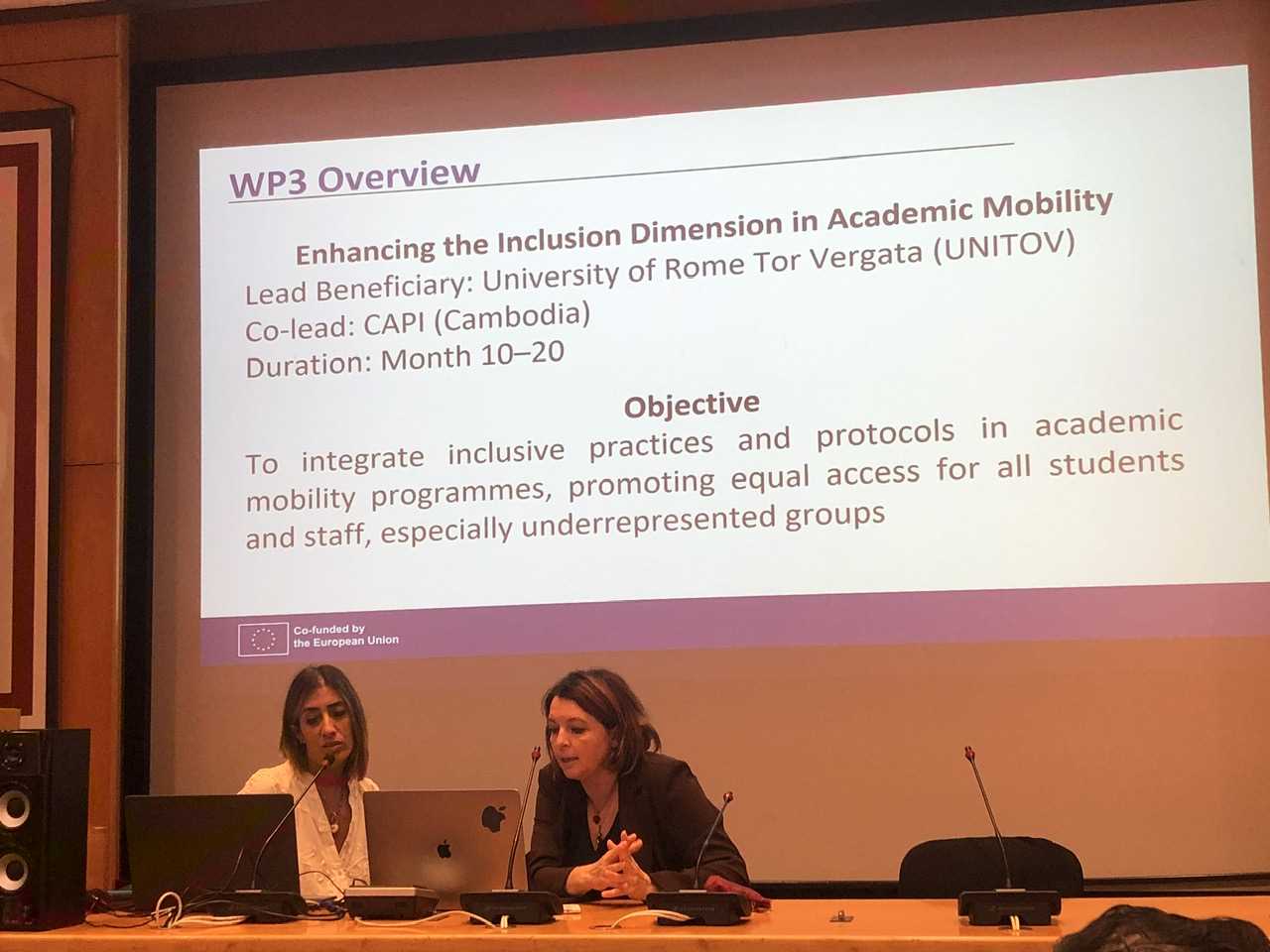
Some photos of the project’s staff week
In addition to official academic and practical exchange sessions, the working meetings also featured presentations and experience sharing from member universities participating in the project, such as Kenyatta University (Kenya) and Kyambogo University (Uganda), as well as comments and discussions from representatives of other countries such as Bulgaria and Jordan.
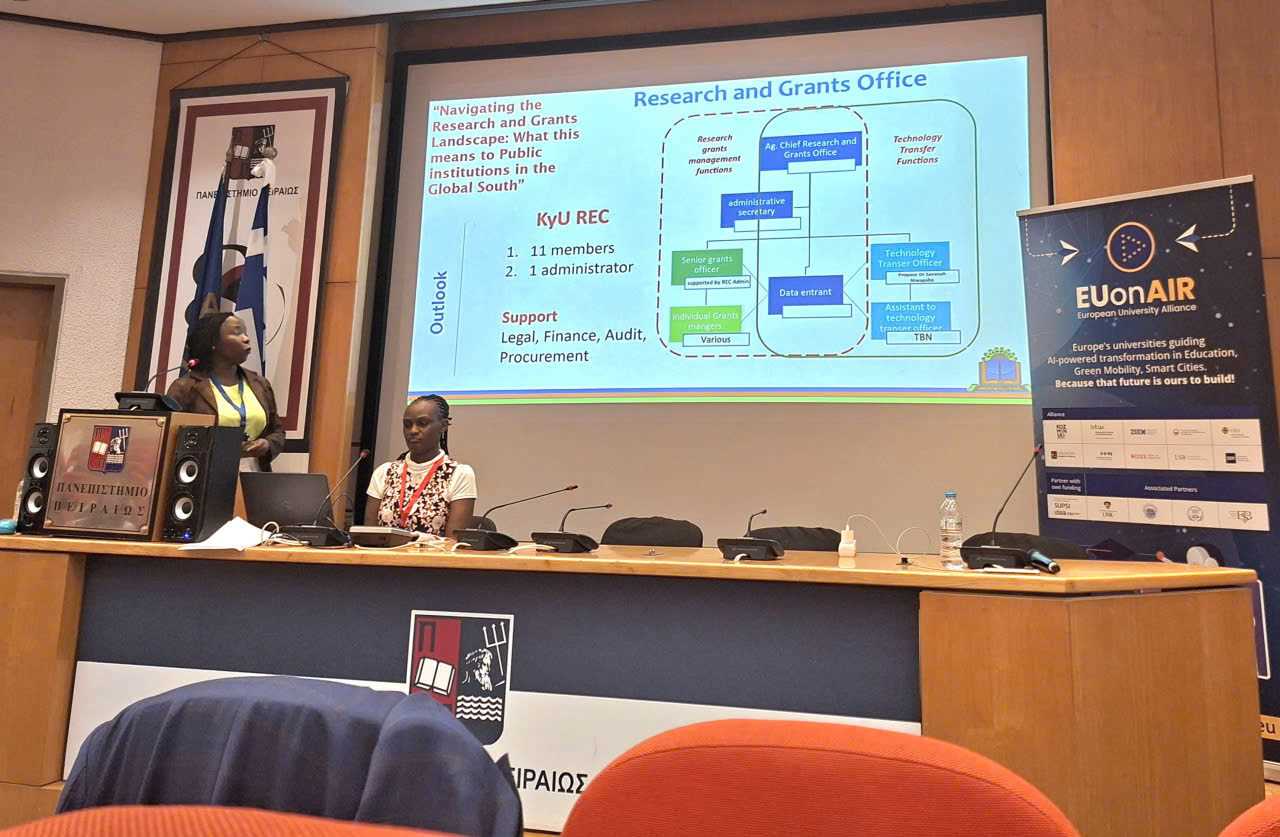
At the end of the training activities, members of the working delegation were awarded certificates of participation in the project’s training program.
The training course was highly practical and meaningful for the project members. After the course, UFBA plans to develop strategies and action plans to strengthen international cooperation, promote the use of AI in research and education, enhance student and staff exchange, and pursue international projects in the field of education and training.
UFBA’s Side Events
1. Cultural Exchange Activities
The UFBA members visited the university campus and had a friendly talk with the leadership of the University of Piraeus, presenting them with souvenirs.
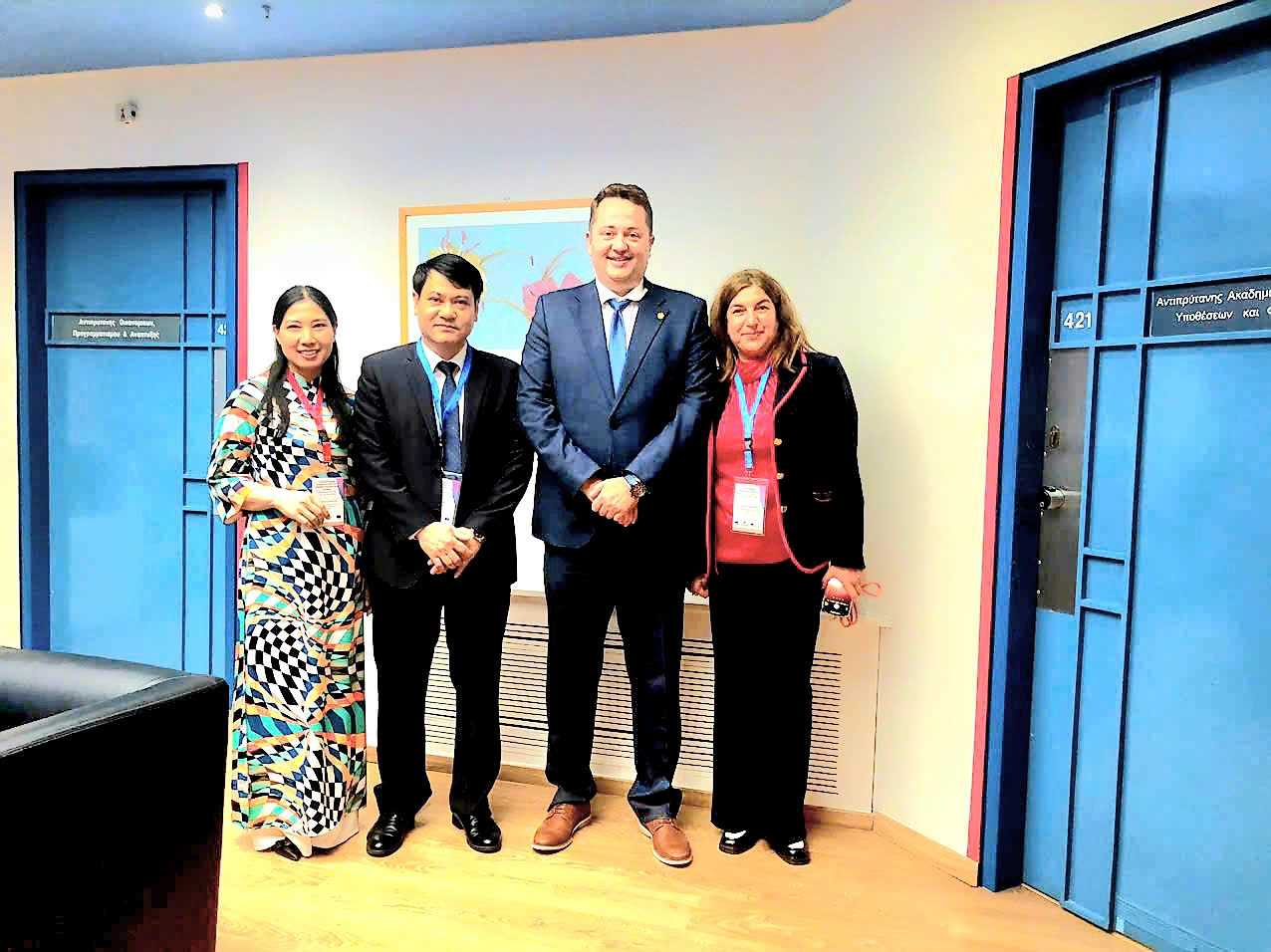
UFBA leaders visited and took commemorative photos with the leadership of the University of Piraeus.
In addition, the UFBA members took part in cultural exchanges with representatives from other delegations such as Bulgaria, Cambodia, and Jordan, among others.
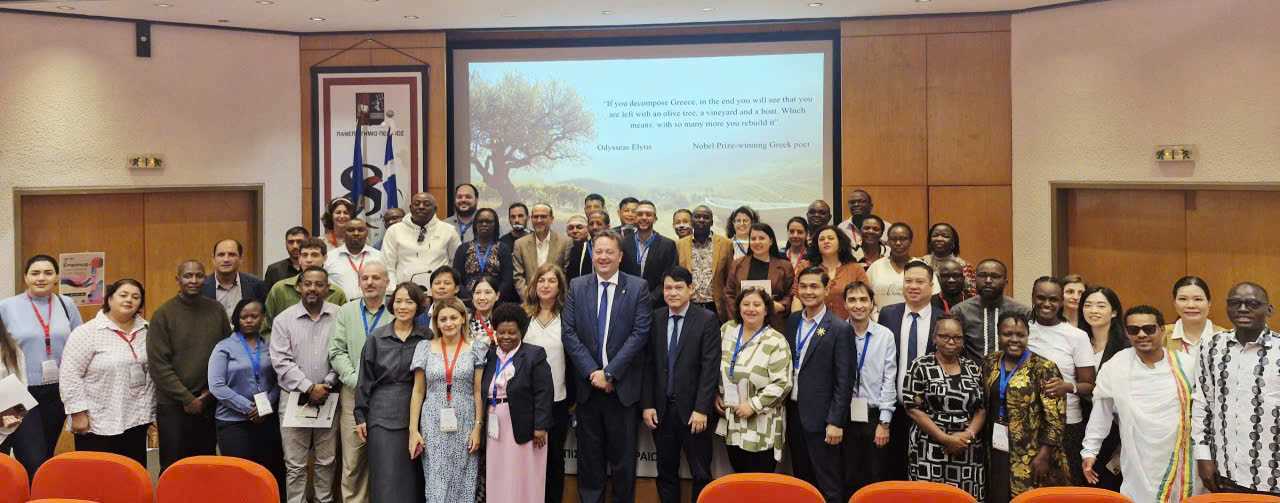
Representatives of UFBA took photo with the other project members
During the second project group meeting held on October 25, 2025, the representatives from UFBA presented a financial update, including financial management activities, budget implementation, reporting obligations, and updates on work packages (WP2 and WP3). The representative also outlined directions for building the university’s capacity to expand internationalization in its role as a project member.
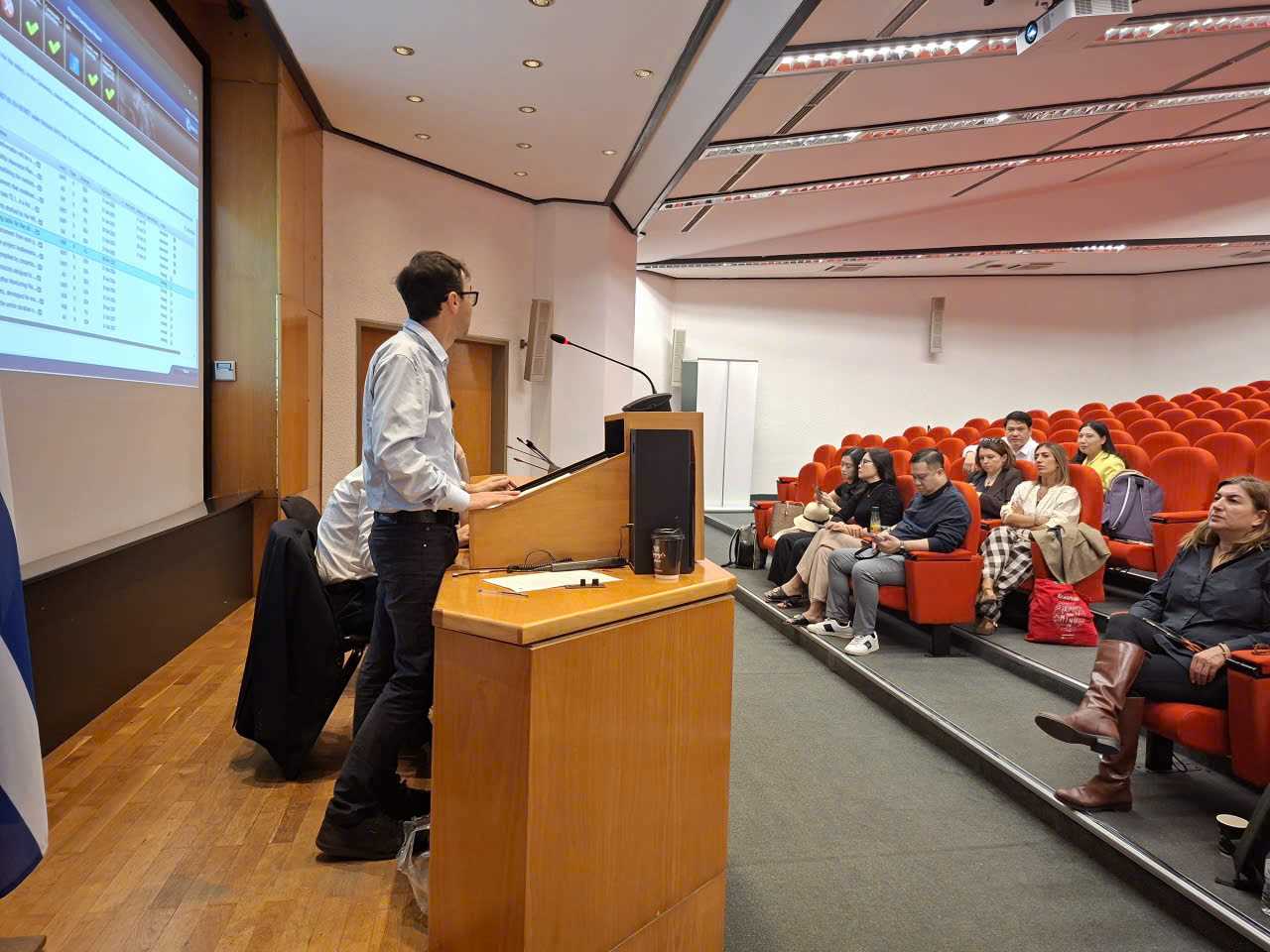
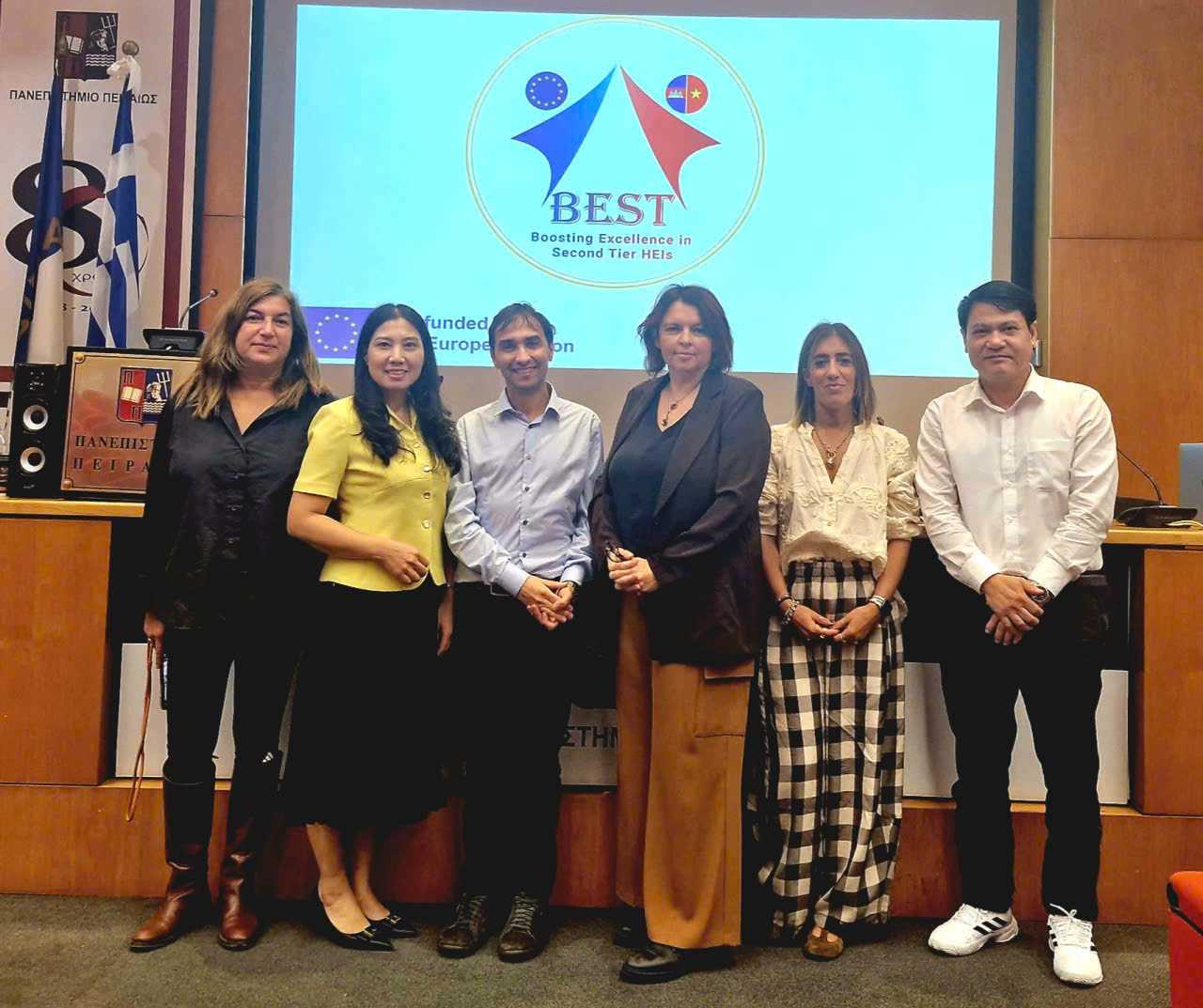
Representatives of UFBA taking photo with the Project Management Board.
2. Academic Exchange Activities and Signing of Memoranda of Understanding (MOUs)
UFBA members actively participated in all working sessions and made positive contributions during the meetings.
At the WP3 group meeting held on October 24–25, 2025, under the theme “Feedback from HUB Leaders: UFBA, CAPI, AU, UNIPI”, Mr. Mario, the representative from UNIPI, presented an overview of the project’s progress after ten months of implementation — including achievements, challenges, lessons learned, and strategies for internationalization.
During this session, Dr. Nguyen Thi Bich Điep, representing the University of Finance and Business Administration, signed MOUs with Angkor University and Asia Polytechnic Institute of Cambodia. This event marked an important milestone in the university’s internationalization strategy as well as a significant step toward fulfilling the tasks of the BEST Project, in which UFBA is a member.
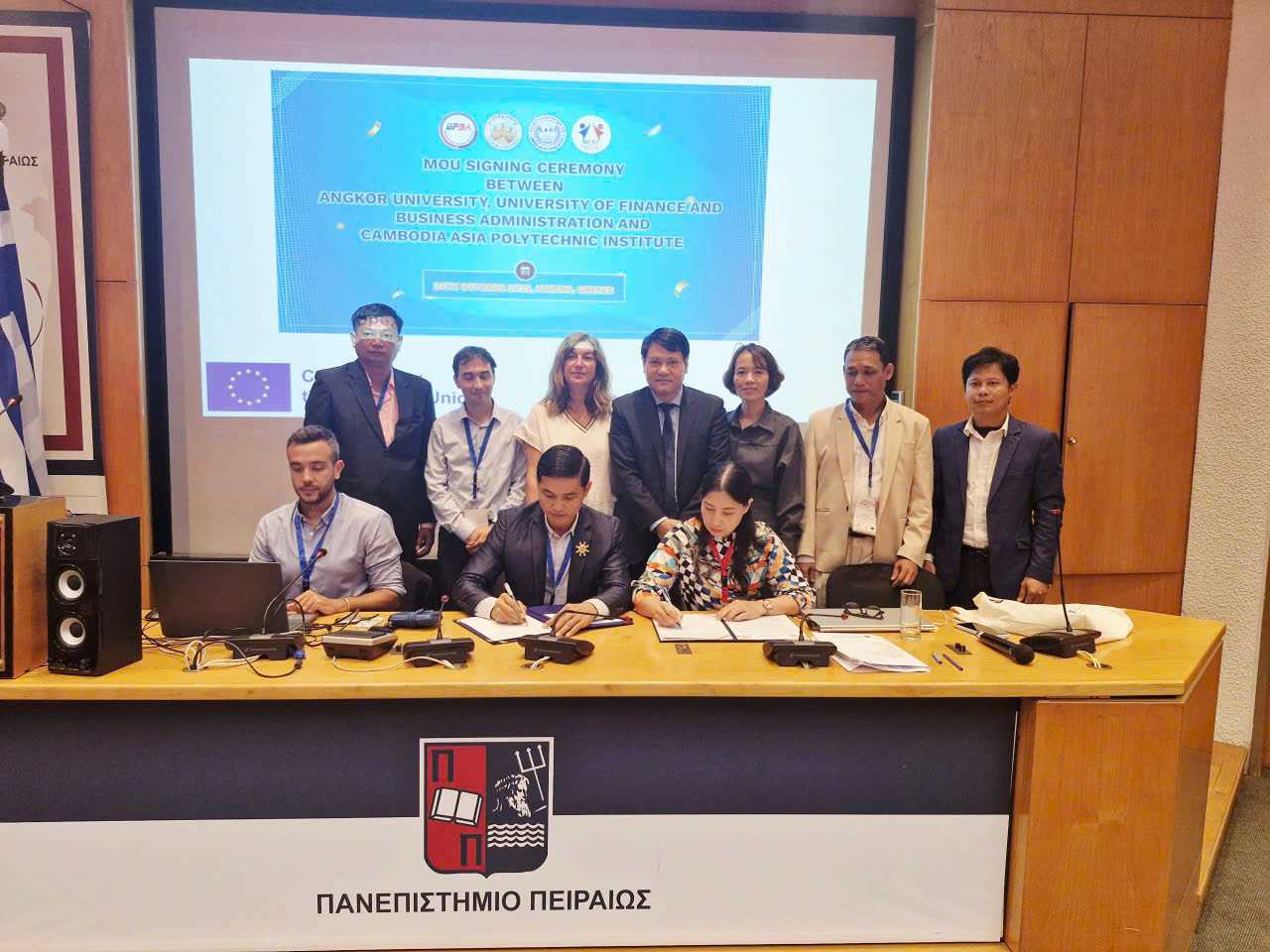
The University of Finance and Business Administration and Angkor University signed the MOU.
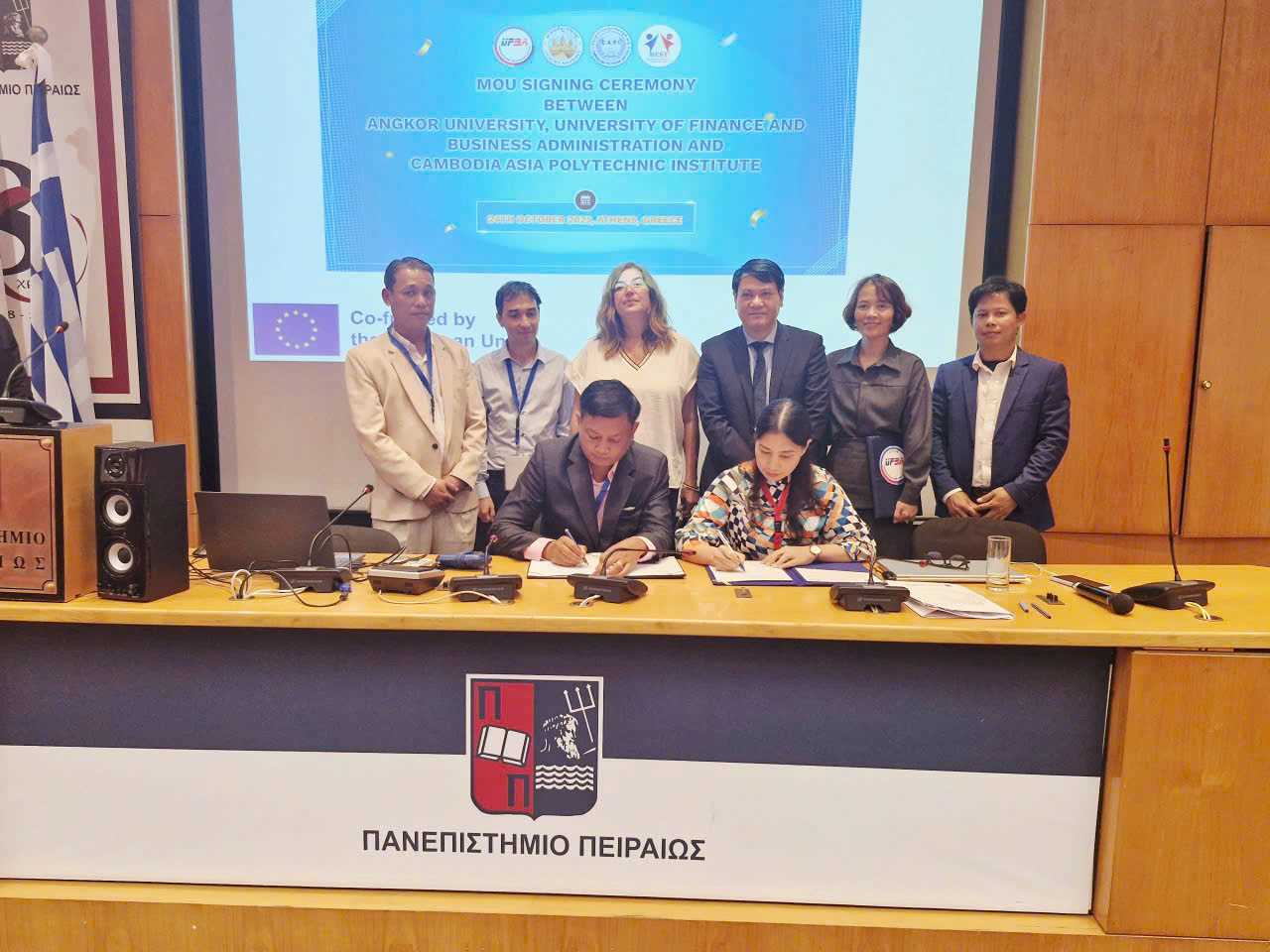
The UFBA and the API signed the MOU.
The signing of cooperation agreements among the member universities of the BEST Project has opened up numerous opportunities for international collaboration in education and scientific research, in line with the strong global trends of digital transformation and Artificial Intelligence.
Department of Science and International Cooperation


